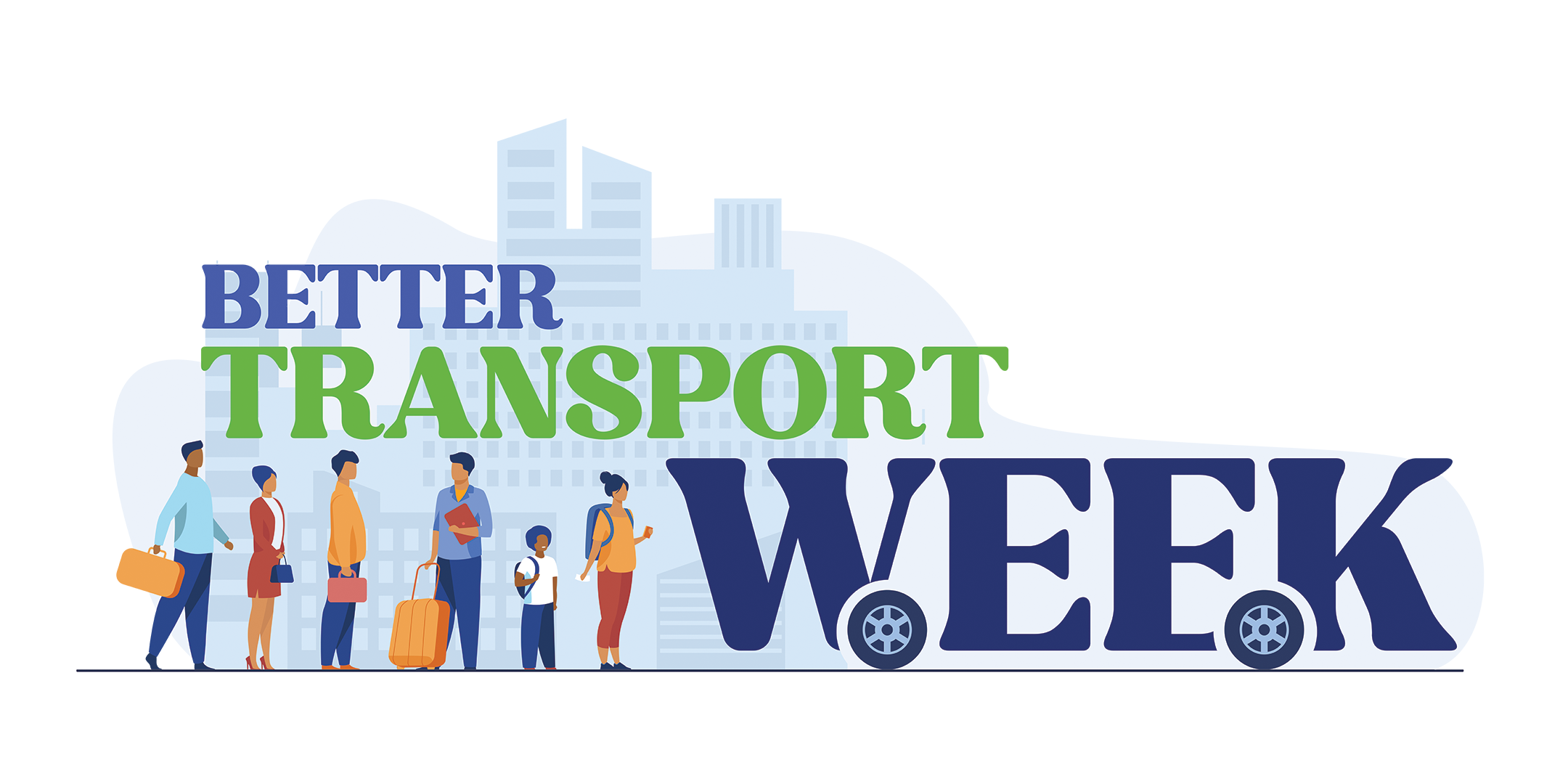
June 18, 2024, by sustainablenottingham
Better Transport Week 2024 – a chance to change your commute
In the UK, transport is responsible for more carbon emissions than any other sector. Better Transport Week, taking place from 17 to 24 June 2024, is a week-long celebration of and campaign for better sustainable transport. Choosing to travel sustainably is one of the most effective things we can do to look after our environment. But changing the way we travel can be daunting so here are some tips to help you.
Catch the bus or tram
A fully loaded double decker bus can take 75 cars off the road. Single bus journeys are currently capped at £2 (until end of Dec 2024) so there’s never been a better time to try the bus!
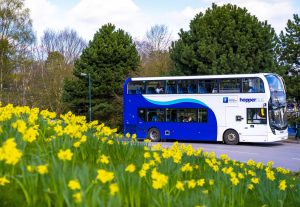
UoN hopper bus
To travel between campuses, the university funds hopper bus services and we subsidise the medilink service so UoN staff and students can use the medilink for free when you show your university card.
To plan journeys by public transport, use the Traveline website or Google Maps. More information about using public transport to travel to our campuses can be found via the UoN Sustainability webpages and you can get a personalised travel plan if you’re not sure of your options.
You can pay for the bus or tram by contactless as well as by cash, and try downloading NCT buses and NET trams apps to plan journeys and to purchase tickets.
Discounted daily, weekly, monthly and annual tickets, as well as group tickets are available for the bus and tram. And UoN staff can choose to purchase an annual season tickets via salary deduction to spread the cost over the year – find out more here.
Catch the train
Driving in a medium petrol car with one occupant produces more than four times as much greenhouse gas per passenger mile as travelling by rail.
Plan rail journeys and buy your ticket online with the National Rail Enquiries website. Or visit your nearest rail station booking office, where the staff will help you to find a good deal.
But isn’t rail travel eye-wateringly expensive? The answer is… yes and no. For cheaper tickets, book well in advance, and travel off peak, and be flexible about when you travel. And if you qualify for a Railcard, it’s well worth getting one – most get you a third off your fare!
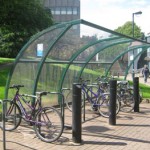
One of the cycling facilities on University Park
Walk or cycle
In 2021, 25% of trips made by people in England were under 1 mile, and 72% were under 5 miles. The perfect length for walking or cycling!
To help you cycle, we have 5,000 cycle parking spaces on our campuses (including card access cycle parking) as well as showers, lockers and drying cabinets. Use our interactive maps to find your closest facilities.
If you need a new bike then we offer a Cycle to Work scheme for UoN staff that helps make purchasing a bike more affordable by allowing you to purchase one through salary sacrifice. There’s the option for long term bike hire through Enactus’ U-cycle and we host regular refurbished bike sales on our campuses throughout the year.
To keep your bike in good working order, we offer a range of cycle repair facilities on campus.
And if it’s too far to walk or cycle, how about hiring an e-bike via Lime – there are e-bike hire points across our Nottingham City campuses.
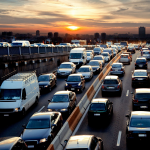
EV’s still contribute to traffic
Share the car
With petrol prices soaring ever higher, sharing a lift can give your wallet a much-needed break.
To enable car sharing, we have a university-specific Liftshare platform to help staff find others to car share with.
Travel the world
Travelling by international rail emits just one-sixteenth the carbon of taking a short-haul flight.

Reducing flights is one of the biggest environmental impacts you can have
Choosing not to take a flight is the easiest way to make a meaningful reduction to your carbon footprint. But cutting down on flying does not mean we have to forgo overseas travel altogether, by choosing rail, ferry or coach, you can still travel overseas, with a fraction of the carbon impact.
To find out anything you could ever want to know about international rail travel, visit Seat61.com. There are also a growing number of travel agencies that specialise in flight-free travel, including Byway and the No Fly Travel Club.
If flights are still your only option, recommendations are to try to keep short haul flights to one return every 3 years and long haul to one return every 8 years.
Reduce pollution
Better Transport Week coincides with Clean Air Day, the UK’s largest air pollution campaign which falls on 20 June 2024. Road traffic is a significant source of air pollution, so by walking, wheeling or using public transport you can reduce your exposure and contribution to air pollution.
And if you do need to drive, then turn off your engine when your vehicle is stationary. Idling can generate twice as much pollution as a moving car. Whilst some car journeys cannot be helped, pollution from stationary vehicles is just unnecessary.
More information about sustainable travel options can be found on our webpages.
No comments yet, fill out a comment to be the first

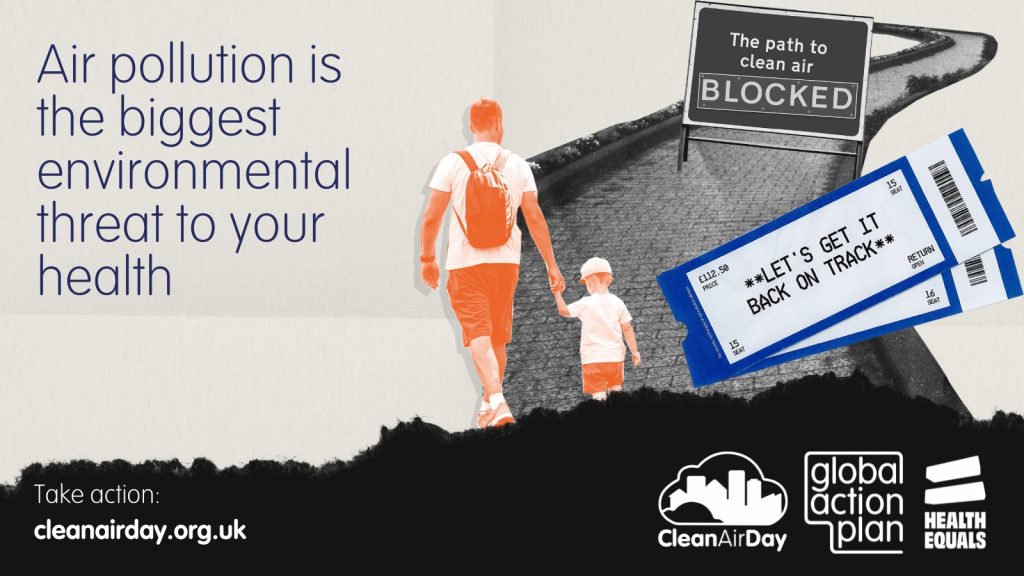
Leave a Reply